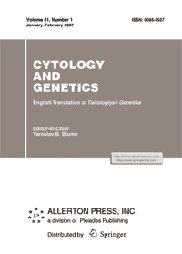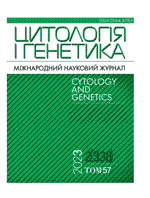India currently has the second largest number of individuals suffering from diabetes across the world. Hence, it is pertinent to explore the genetic variations in Indian populations to comprehend the extent of genetic heterogeneity. We studied the association of gene variations of four candidate genes [SLC30A8 (rs11558471), CDKAL1 (rs94655871), TCF7L2 (rs12255372) and HHEX (rs1111875)] with Type 2 Diabetes (T2D) in the North East Indian population on whom there is very little data available. DNA was extracted from 155 diabetic patients and 100 non-diabetic controls. Genotyping was performed by Polymerase chain reaction-Restriction fragment length polymorphism (PCR-RFLP). Logistic regression analysis was performed to detect the association between genetic variants and type 2 diabetes. The CT genotype of rs9465871 (CDKAL1 gene) showed significant protection against diabetes [OR = 0.39 (0.17–0.91), p = 0.029] as compared to the CC genotype even after adjusting for age, sex and BMI. When analysed under a recessive model, the GG genotype of rs1111875 (HHEX gene) also showed significant protection against diabetes [OR = 0.38 (0.18–0.82), p = 0.014] as compared to the AA+AG genotypes. Both these findings did not remain significant after Bonferroni threshold of p = 0.0041 was applied. There is considerable variation in the pattern of association of these genes with T2D amongst the North East Indian population, when compared to the other ethnically and geographically diverse Indian populations.
Keywords: hyperglycaemia; genetics; diabetes; north east India

Full text and supplemented materials
References
1. Shaw, J., Sicree, R., and Zimmet, P., Global estimates of the prevalence of diabetes for 2010 and 2030, Diabetes Res. Clin. Pract., 2010, vol. 87, pp. 4–14. https://doi.org/10.1016/j.diabres.2009.10.007
2. Guariguata, L., Whiting, D.R., Hambleton, I., Beagley, J., Linnenkamp, U., and Shaw, J.E., Global estimates of diabetes prevalence for 2013 and projections for 2035, Diabetes Res. Clin. Pract., 2014, vol. 103, no. 2, pp. 137–149. https://doi.org/10.1016/j.diabres.2013.11.002
3. Cho, N.H., Shaw, J.E., Karuranga, S., Huang, Y., da Rocha Fernandes, J.D., Ohlrogge, A.W., and Malanda, B., IDF Diabetes Atlas: global estimates of diabetes prevalence for 2017 and projections for 2045, Diabetes Res. Clin. Pract., 2018, vol. 138, pp. 71–81.https://doi.org/10.1016/j.diabres.2018.02.023
4. Herder, C. and Roden, M., Genetics of type 2 diabetes: pathophysiologic and clinical relevance, Eur. J. Clin. Invest., 2011, vol. 41, no. 6, pp. 679–692. https://doi.org/10.1111/j.1365-2362.2010.02454.x
5. Mohan, V., Sandeep, S., Deepa, R., Bela, S., and Cherian, V., Epidemiology of type 2 diabetes: Indian scenario, Indian J. Med. Res. 11 GLM, 2007, vol. 125, pp. 217–230. http://www.icmr.nic.in/ijmr/2007/march/0302.pdf.
6. Fawwad, A., Rashid, K., and Basit, A., Genetics of type 2 diabetes mellitus—Asian perspective (a review), Turk. JEM, 2017, vol. 21, pp. 52–59.
7. Misbah, M., Masood, A., Showkat, A.K., Hameed, I., and Ganai, B.A., Association of Pro12Ala polymorphism of peroxisome proliferator-activated receptor gamma 2 (PPARc2) gene with type 2 diabetes mellitus in ethnic Kashmiri population, Biochem. Gene, 2017, vol. 55, pp. 10–21. https://doi.org/10.1007/s10528-016-9765-6
8. Han, X., Luo, Y., Ren, Q., Zhang, X., Wang, F., Sun, X., Zhou, X., and Ji, L., Implication of genetic variants near SLC30A8, HHEX, CDKAL1, CDKN2A/B, IGF2BP2, FTO, TCF2, KCNQ1, and WFS1 in type 2 diabetes in a Chinese population, BMC Med. Genet., 2010, vol. 11, p. 81. https://doi.org/10.1186/1471-2350-11-81
9. Dehwah, M., Wang, M., and Huang, Q., CDKAL1 and type 2 diabetes: a global meta-analysis, Genet. Mol. Res., 2010, vol. 9, pp. 1109–1120. https://doi.org/10.4238/vol9-2gmr802
10. Bodhini, D., Chidambaram, M., Liju, S., Prakash, V.G., Gayathri, V., Shanthirani, C.S., Ranjith, U., Anjana, R.M., Mohan, V., and Radha, V., Association of TCF7L2 polymorphism with diabetic nephropathy in the South Indian population, Ann. Hum. Genet., 2015, vol. 79, pp. 373–379. https://doi.org/10.1111/ahg.12122
11. Phani, N., Guddattu, V., and Bellampalli, R., Population specific impact of genetic variants in KCNJ11 gene to type 2 diabetes: a case-control and meta-analysis study, PLoS One, 2014, vol. 9. e107 021. https://doi.org/10.1371/journal.pone.0107021
12. Kristensen, P.L., Pedersen-Bjergaard, U., Due-Andersen, R., Høi-Hansen, T., Grimmeshave, L., Lyssenko, V., Groop, L., Holst, J.J., Vaag, A.A., and Thorsteinsson, B., Impact of the TCF7L2 genotype on risk of hypoglycaemia and glucagon secretion during hypoglycaemia, Endocr. Connect., 2016, vol. 5, no. 6, pp. 53–60. https://doi.org/10.1530/EC-16-0050
13. Chidambaram, M., Radha, V., and Mohan, V., Replication of recently described type 2 diabetes gene variants in a South Indian population, Metabolism, 2010, vol. 59, pp. 1760–1766. https://doi.org/10.1016/j.metabol.2010.04.024
14. Chauhan, G., Spurgeon, C.J., Tabassum, R., Bhaskar, S., Kulkarni, S.R., Mahajan, A., Chavali, S., Kumar, M.K., Prakash, S., Dwivedi, O.P., and Ghosh, S., Impact of common variants of PPARG, KCNJ11, TCF7L2, SLC30A8, HHEX, CDKN2A, IGF2BP2, and CDKAL1 on the risk of type 2 diabetes in 5,164 Indians, Diabetes, 2010, vol. 59, pp. 2068–2074. https://doi.org/10.2337/db09-1386
15. Sambrook, J., Fritsch, E.F., and Maniatis, T., Molecular Cloning: A Laboratory Manual, Nova York: Cold Spring Harbor Laboratory Press, 2012.
16. Huang, Q., Merriman, C., Zhang, H., and Fu, D., Coupling of insulin secretion and display of a granule-resident Zinc transporter ZnT8 on the surface of pancreatic beta-cells, J. Biol Chem., 2017, vol. 292, no. 10, pp. 4034–4043. https://doi.org/10.1074/jbc.M116.772152
17. Xu, J., Wang, J., and Chen, B., SLC30A8 (ZnT8) variations and type 2 diabetes in the Chinese Han population, Genet. Mol. Res., 2012, vol. 11, no. 2, pp. 1592–1598. https://doi.org/10.4238/2012.May.24.1
18. Seman, N.A., Mohamud, W.N.W., Östenson, C.G., Brisma, K., and Gu, H.F., Increased DNA methylation of the SLC30A8 gene promoter is associated with type 2 diabetes in a Malay population, Clin. Epigenetics, 2015, vol. 7, p. 30. https://doi.org/10.1186/s13148-015-0049-5
19. Imaizumi, M., Yoshida, M., Aoyagi, K., Saito, T., Okamura, T., Takenaka, H., Akimoto, Y., Nakamichi, Y., Takanashi-Yanobu, R., Nishiwaki, C., and Kawakami, H., Deletion of CDKAL1 affects mitochondrial ATP generation and first-phase insulin exocytosis, PLos One, 2010, vol. 5. e15 553. https://doi.org/10.1371/journal.pone.0015553
20. Ryoo, H., Woo, J., Kim, Y., and Lee, C., Heterogeneity of genetic associations of CDKAL1 and HHEX with susceptibility of type 2 diabetes mellitus by gender, Eur. J. Hum. Genet., 2011, vol. 19, pp. 672–675. https://doi.org/10.1038/ejhg.2011.6
21. Miyaki, K., Oo, T., Song, Y., Lwin, H., Tomita, Y., Hoshino, H., Suzuki, N., and Muramatsu, M., Association of a cyclin-dependent kinase 5 regulatory subunit-associated protein 1-like 1 (CDKAL1) polymorphism with elevated hemoglobin A1c levels and the prevalence of metabolic syndrome in Japanese men: interaction with dietary energy intake, Am. J. Epidemiol., 2010, vol. 172, pp. 985–991. https://doi.org/10.1093/aje/kwq281
22. Saxena, R., Voight, F., Lyssenko, V., Burtt, N.P., de Bakker, P.I., Chen, H., Roix, J.J., Kathiresan, S., Hirschhorn, J.N., Daly, M.J., and Hughes, T.E., Genome-wide association analysis identifies loci for type 2 diabetes and triglyceride levels, Science, 2007, vol. 316, pp. 1331–1336. https://doi.org/10.1126/science.1142358
23. Plengvidhya, N., Chanprasert, C., Chongjaroen, N., Yenchitsomanus, P.T., Homsanit, M., and Tangjittipokin, W., Impact of KCNQ1, CDKN2A/2B, CDKAL1, HHEX, MTNR1B, SLC30A8, TCF7L2, and UBE2E2 on risk of developing type 2 diabetes in Thai population, BMC Med. Genet., 2018, vol. 19, no. 1, p. 93. https://doi.org/10.1186/s12881-018-0614-9
24. Tuerxunyiming, M., Mohemaiti, P., Wufuer, H., and Tuheti, A., Association of rs7754840 G/C polymorphisms in CDKAL1 with type 2 diabetes: a meta-analysis of 70 141 subjects, Int. J. Clin. Exp. Med., 2015, vol. 8, no. 10, pp. 17 392–17 405.
25. Wu, Y., Li, H., Loos, R.J., Yu, Z., Ye, X., Chen, L., Pan, A., Hu, F.B., and Lin, X., Common variants in CDKAL1, CDKN2A/B, IGF2BP2, SLC30A8, and HHEX/IDE genes are associated with type 2 diabetes and impaired fasting glucose in a Chinese Han population, Diabetes, 2008, vol. 57, pp. 834–842. https://doi.org/10.2337/db08-0047
26. Engelbrechtsen, L., Hansen, T.H., Mahendran, Y., Pyl, P., Andersson, E., Jonsson, A., Gjesing, A., Linneberg, A., Jørgensen, T., Hansen, T., and Vestergaard, H., Homozygous carriers of the TCF7L2 rs7903146 T-allele show altered postprandial response in triglycerides and triglyceride-rich lipoproteins, Sci. Rep., 2017, vol. 7, p. 43 128. https://doi.org/10.1038/srep43128
27. Lin, P.C., Lin, W.T., Yeh, Y.H., and Wung, S.F., Transcription factor 7-like 2 (TCF7L2) rs7903146 polymorphism as a risk factor for gestational diabetes mellitus: a meta-analysis, PLoS One, 2016, vol. 11, no. 4. e0 153 044. https://doi.org/10.1371/journal.pone.0153044
28. Wang, J., Zhang, J., Li, L., Wang, Y., Wang, Q., Zhai, Y., You, H., and Hu, D., Association of rs12255372 in the TCF7L2 Gene with T2D mellitus: a meta-analysis, Braz. J. Med. Biol. Res. 2013, vol. 46, pp. 382–393. https://doi.org/10.1590/1414-431X20132677
29. Florez, J., Jablonski, K., Bayley, N., Pollin, T.I., de Bakker, P.I., Shuldiner, A.R., Knowler, W.C., Nathan, D.M., and Altshuler, D., TCF7L2 polymorphisms and progression to diabetes in the Diabetes Prevention Program, N. Engl. J. Med., 2007, vol. 355, pp. 241–250. https://doi.org/10.1056/NEJMoa062418
30. Chan, J., Malik, V., Jia, W., Kadowaki, T., Yajnik, C.S., Yoon, K.H., and Hu, F.B., Diabetes in Asia: epidemiology, risk factors, and pathophysiology, JAMA, 2009, vol. 78, pp. 2132–2134. https://doi.org/10.1001/jama.2009.726
31. Hussain, H., Ramachandran, V., Ravi, S., Sajan, T., Ehambaram, K., Gurramkonda, V.B., Ramanathan, G., and Bhaskar, L.V., TCF7L2 rs7903146 polymorphism and diabetic nephropathy association is not independent of type 2 diabetes—a study in a south Indian population and meta-analysis, Endokrynol. Polska, 2014, vol. 65, no. 4, pp. 298–305. https://doi.org/10.5603/EP.2014.0041
32. Luo, Y., Wang, H., Han, X., Ren, Q., Wang, F., Zhang, X., Sun, X., Zhou, X., and Ji, L., Meta-analysis of the association between SNPs in TCF7L2 and type 2 diabetes in East Asian population, Diabetes Res. Clin. Pract., 2009, vol. 85, pp. 139–146. https://doi.org/10.1016/j.diabres.2009.04.024
33. Pourahmadi, M., Erfanian, S., Moradzadeh, M., and Jahromi, A.S., Non-association between rs7903146 and rs12255372 polymorphisms in transcription factor 7-like 2 gene and type 2 diabetes mellitus in Jahrom City, Iran, Diabetes Metab. J., 2015, vol. 39, no. 6, pp. 512–517. https://doi.org/10.4093/dmj.2015.39.6.512
34. Demirsoy, I.H., Aras, M., and Cinkır, U., TCF7L2 rs7903146 gene variation is associated with risk of type 2 diabetes in Turkish population, J. Clin. Med. Genom., 2016, vol. 4, p. 1. https://doi.org/10.4172/2472-128X.1000141
35. Lu, C.C., Chen, Y.T., Chen, S.Y., Hsu, Y.M., Lin, C.C., Tsao, J.W., Juan, Y.N., Yang, J.S., and Tsai, F.J., Hematopoietically expressed homeobox gene is associated with type 2 diabetes in KK Cg-Ay/J mice and a Taiwanese Han Chinese population, Exp. Ther. Med., 2018, vol. 16, no. 1, pp. 185–191. https://doi.org/10.3892/etm.2018.6152
36. Qian, Y., Lu, F., Dong, M., Lin, Y., Li, H., Chen, J., Shen, C., Jin, G., Hu, Z., and Shen, H., Genetic variants of IDE-KIF11-HHEX at 10q23.33 associated with type 2 diabetes risk: a fine-mapping study in Chinese population, PLoS One, 2012, vol. 7, no. 4. e35 060. https://doi.org/10.1371/journal.pone.0035060
37. Uma, J., Subburaj, K., Jayaraj, M., Irgam, K., Kotla, J.P., Velaga, L., and Reddy, B.M., Association of CDKAL1, CDKN2A/B & HHEX gene polymorphisms with type 2 diabetes mellitus in the population of Hyderabad, India, Indian J. Med. Res., 2016, vol. 143, pp. 455–463. https://doi.org/10.4103/0971-5916.184303
